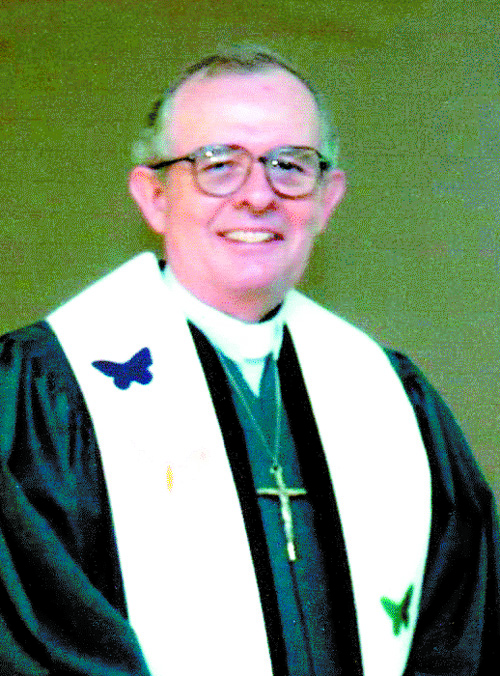Independent Thought — Ban books, not guns

By Rev. Robert Plaisted
Guest Columnist
Some critics may have done a double-take when they noticed the title of this column. They might have wondered if that “commie-pinko” Rev. finally had abandoned the dark side and come over into the glorious light of “conservative” truth. Nah! Cease your heart palpitations, fellas. My views haven’t changed.
The title had two purposes. First, it sought to grab the attention of right-wing gun zealots. If they’re reading this, the ploy succeeded. Second, it was intended to show how absurd gun rights propaganda becomes, once we turn it on its head. Do any rational people believe that banning books is a better idea than banning guns?
I owned a gun once — a 30-30 Winchester that I bought and used briefly, as Robert Burns wrote, “Chasing the wild deer and following the roe.” I even fired at a deer once. Luckily for the deer, I’m not a very good shot. On that occasion, I did hit a big yellow birch, dead center. Such were my adventures exploring what WCSH outdoor correspondent Bill Green always called “Maine’s great hunting tradition.”
I’m a farm boy, raised in the heart of rural Maine’s hunting country, but I never had much regard for that “tradition,” except hunting to put food on the table, as our ancestors did. Only once in my life have I fired a gun and killed another living creature. In my 20s, while visiting my parents in Jay, I looked out the window and saw a woodchuck eating in the field. I borrowed my father’s 22 caliber rifle with its telescopic sight, slipped out the back door, sneaked around to where I could get a clear view of the little critter, and shot him. By the time I reached him, he was barely alive and quivering. Then, he was quiet. That was my only experience with intentional killing. I hated it immediately. I still do.
Guns kill; books don’t. You’ll find no AR-15s on library shelves, no handguns waiting for curious young people, prepared to open their minds to the wonderful world of ideas. Guns don’t open our minds; they destroy our humanity.
The Bible teaches, “Write it in a book, that it may be preserved for the ages” (Isaiah 30:8). Books record what people thought in the past. Even the ugliest of books, like Adolf Hitler’s Mein Kampf, can teach us something about how people think. Psychology students study his book tirelessly, gaining insight into the deranged mind of the Nazi warlord.
Even bad or mediocre books force their readers to deal with ideas. That’s why authoritarians fear and hate them, and the arts in general. Tyrants believe that only their ideas are true. All other ways of thinking must be banished. The Nazis required all citizens to read Der Fuhrer’s book, but they banned, and then burned, most everything else. Some of the ugliest motion picture film ever produced is that black and white footage of mountains of books in flames — the great treasures of human civilization reduced to ashes – at book-burning rallies during the Third Reich.
I started writing this column during our lamentable “Banned Books Week” in America. The United States has a long, sad history of censoring literature, despite our First Amendment right to free speech and press. We preach a much better Bill of Rights than we practice. Throughout our nearly 250 years as a nation, there always seems to be a fanatical faction of Americans who think “freedom” means only the freedom to agree with them.
Heinrich Heine was one of the great German poets. In 1821, he wrote, “Where they burn books, they will burn people in the end.” Heine was Jewish and writing over a century before the Nazis, which makes his statement one of the most prescient in human history. If you’re tempted to attend a school board meeting and screech about the vile, obscene books in the library, remember this: we’ve seen this movie many times before, but its ending is still an atrocity.
Rev. Robert Plaisted is a retired United Methodist clergyman, formerly of Bridgton and Bath, now residing in Auburn.

